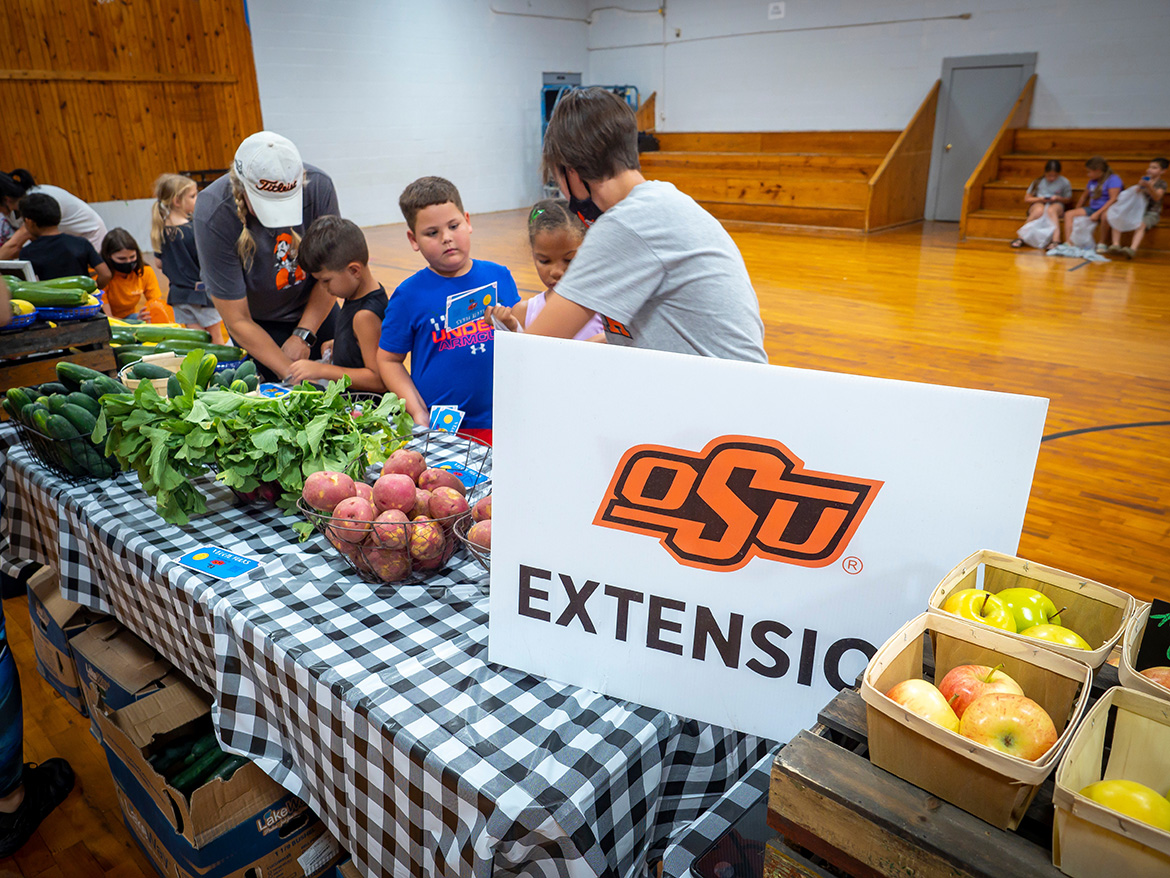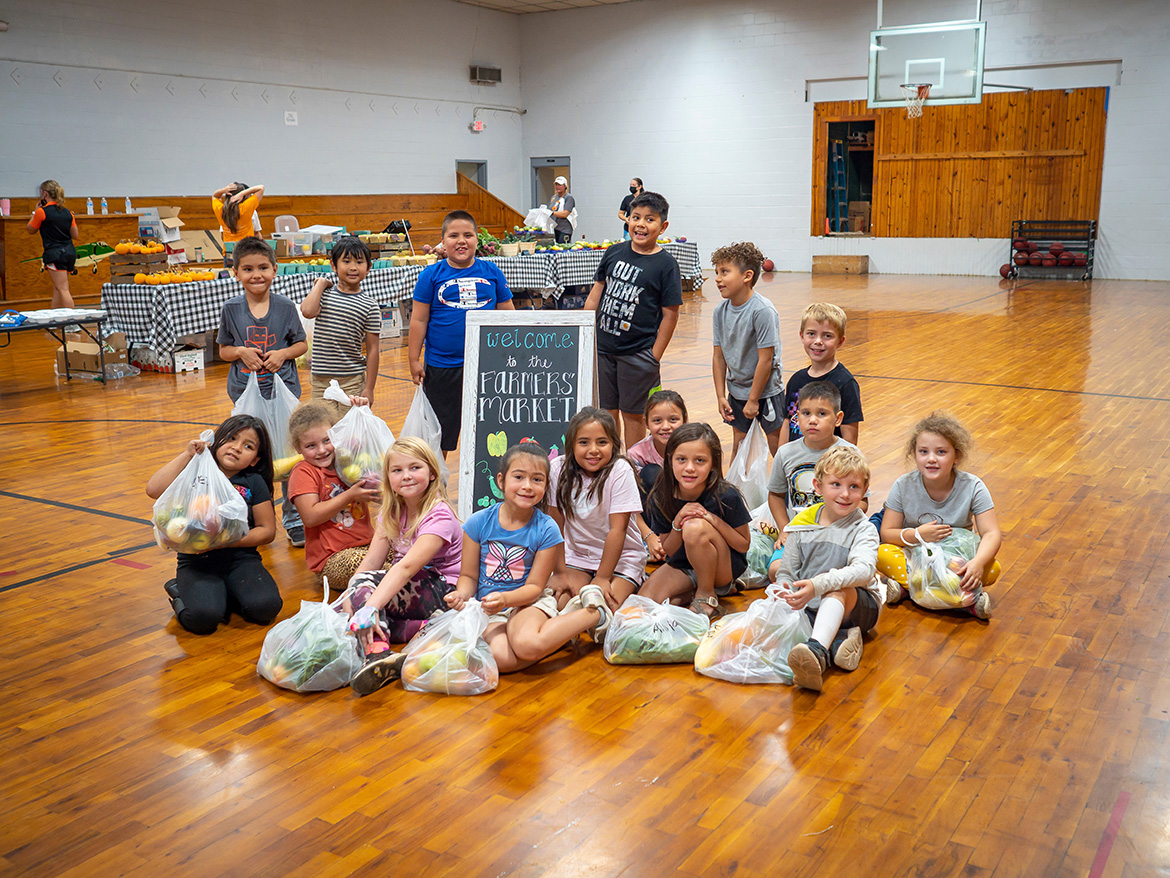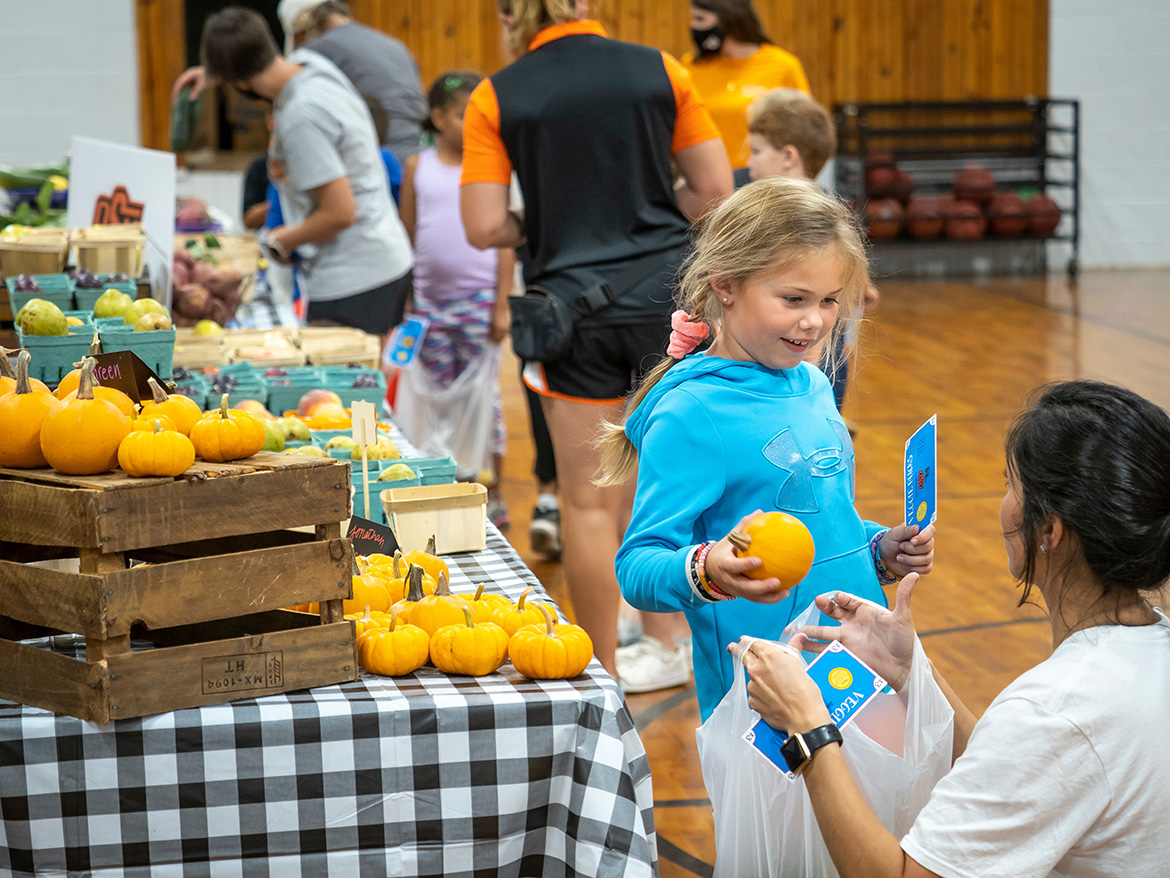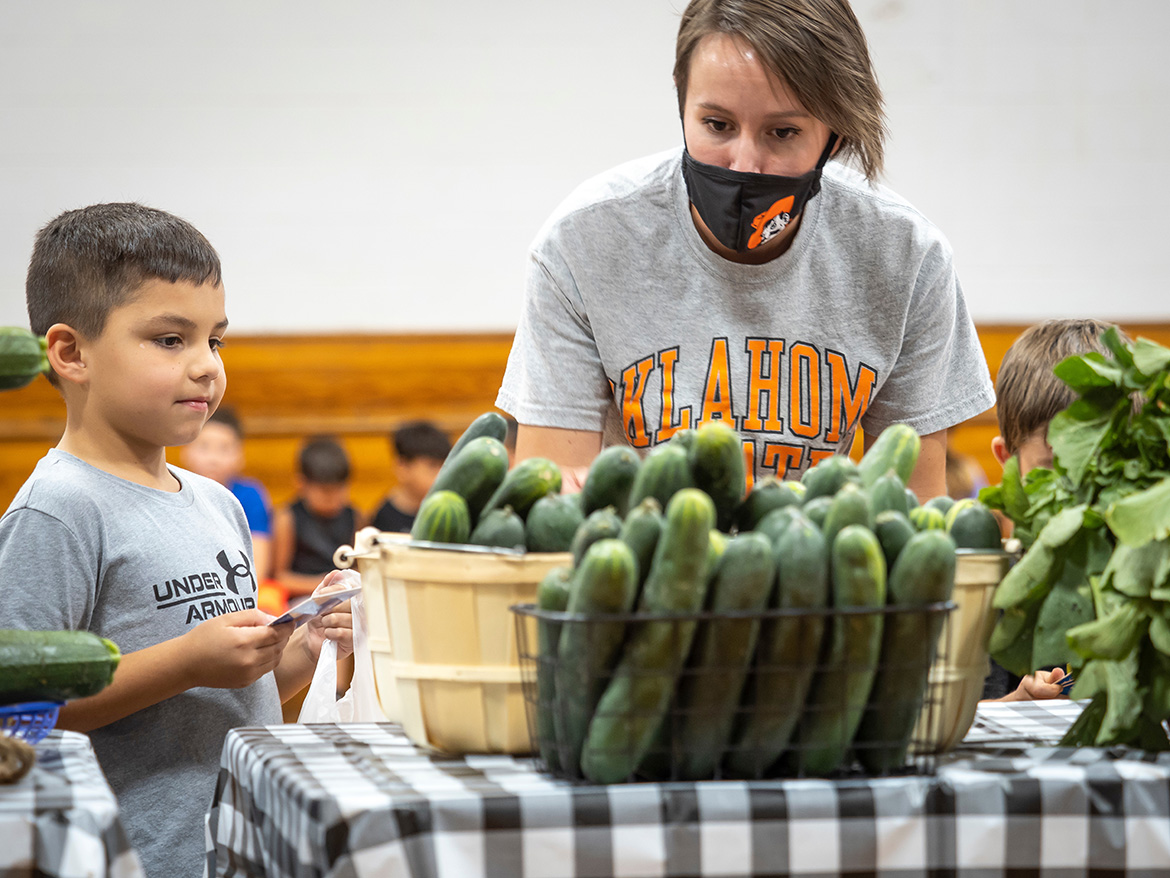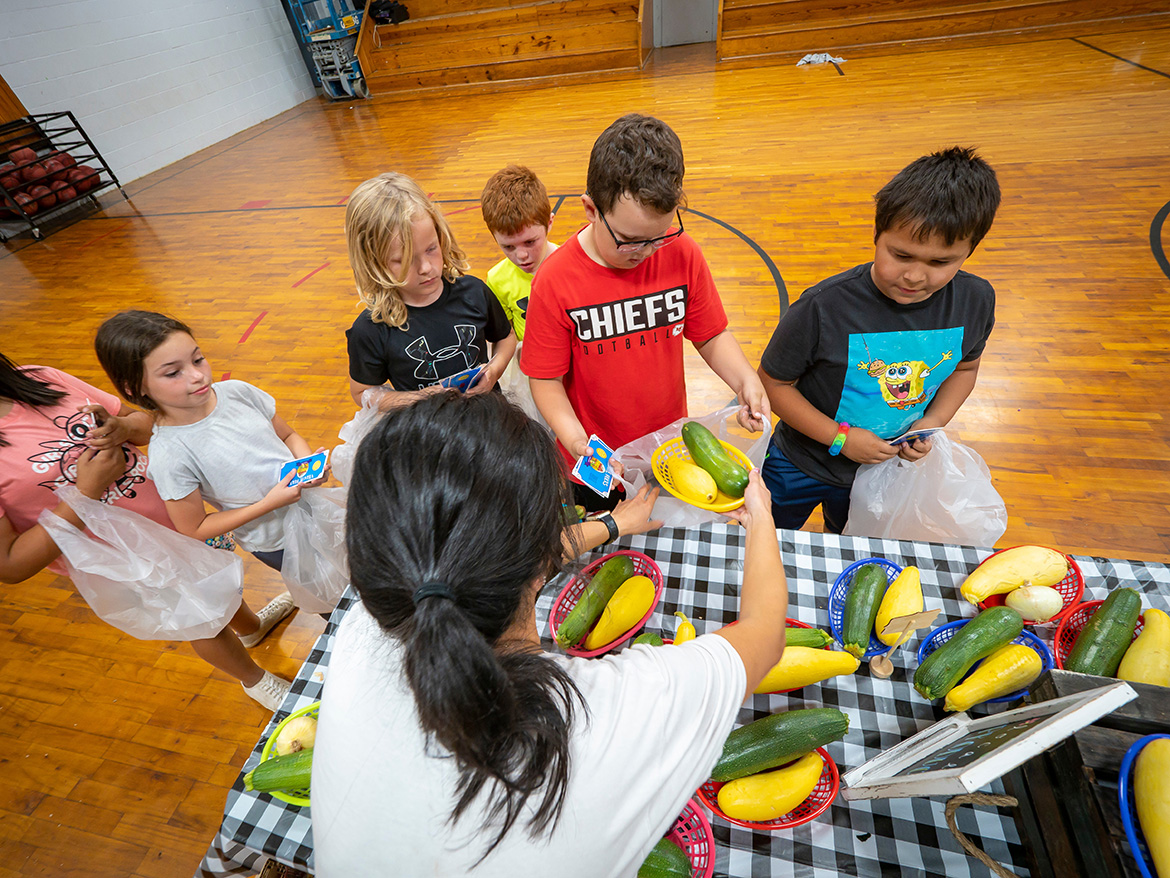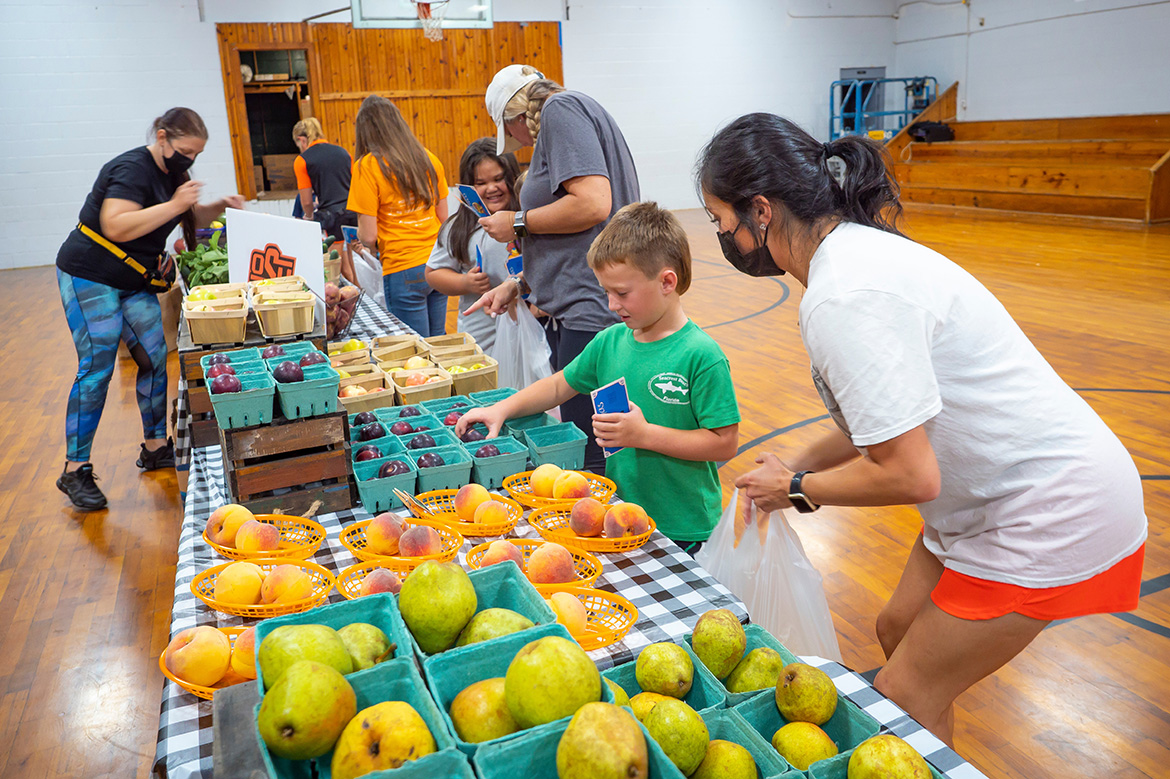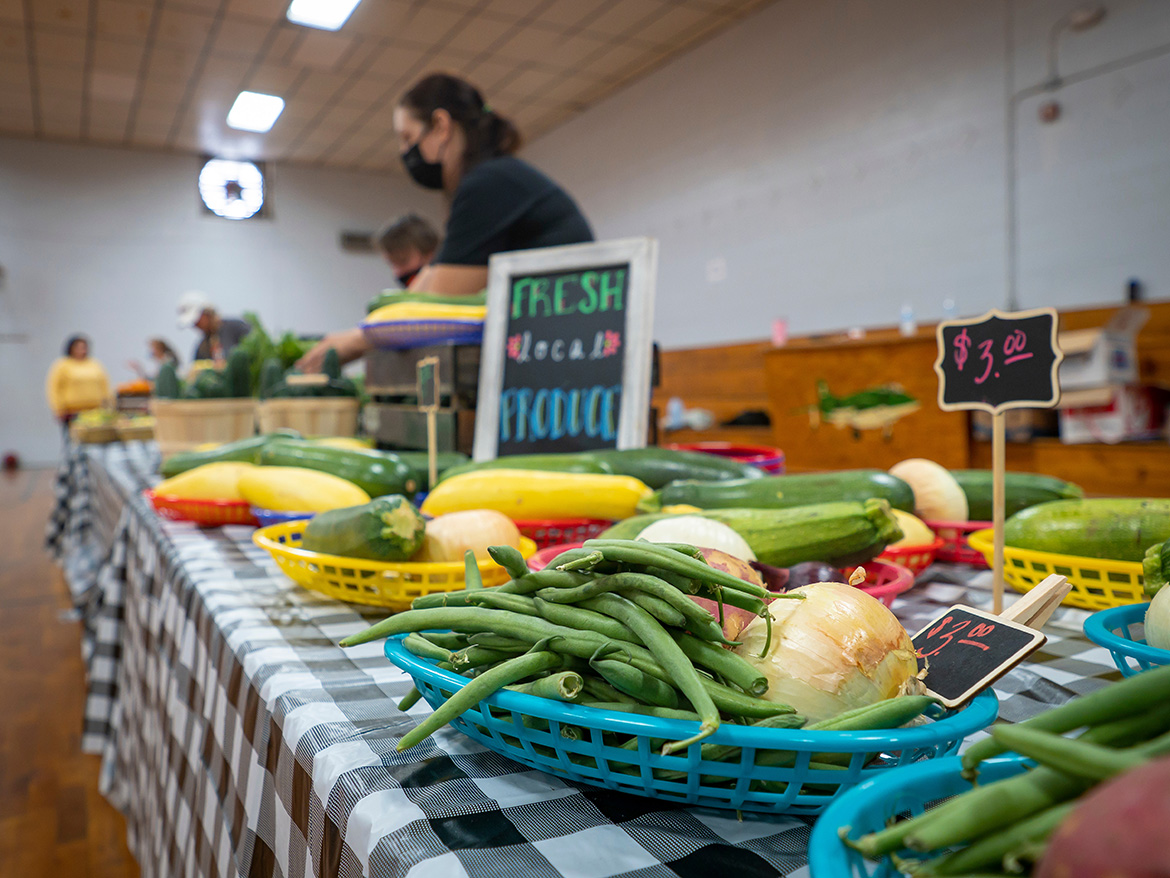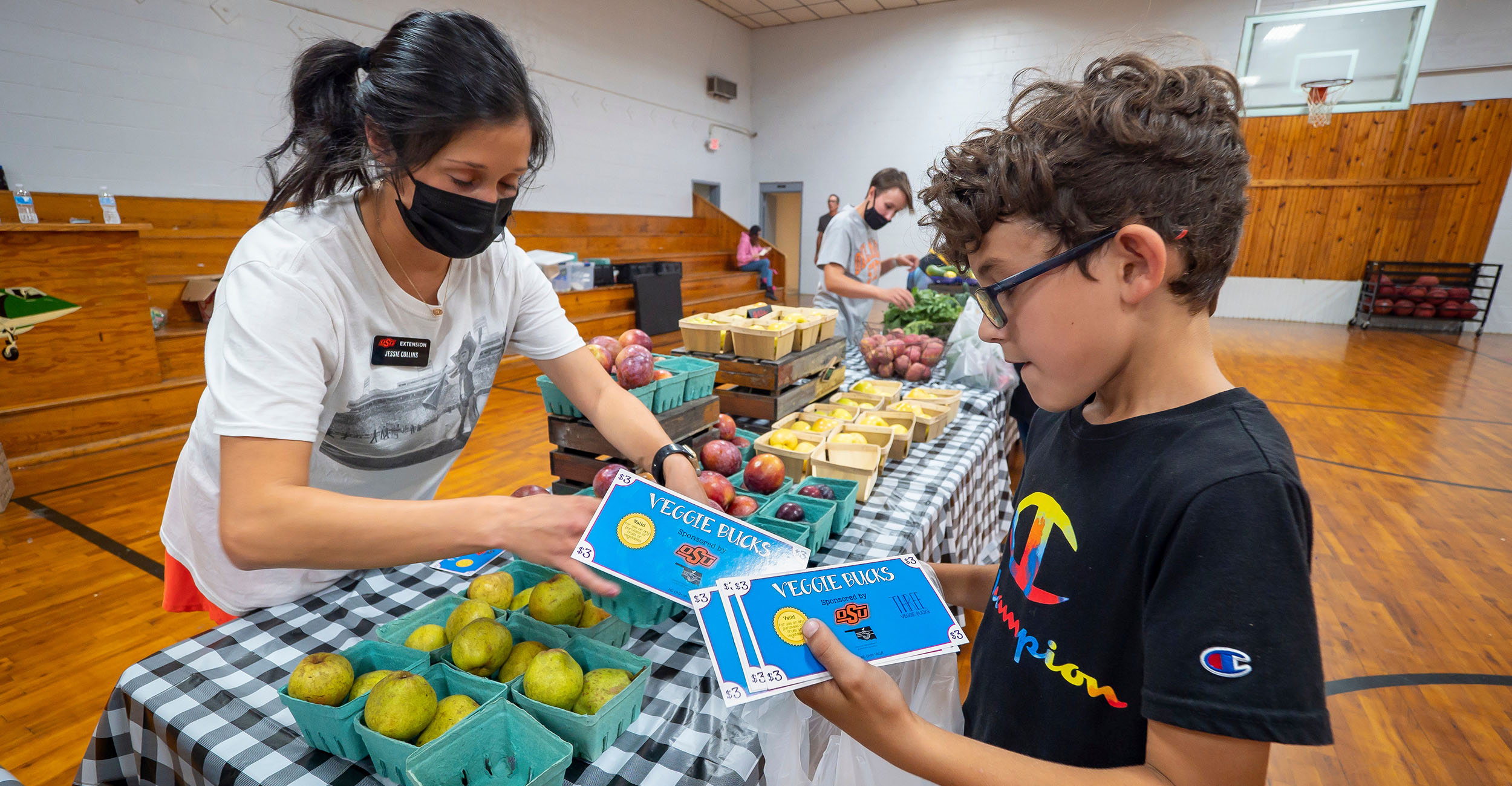
Mobile Farmers Market helps youth learn about nutrition
Monday, October 18, 2021
Media Contact: Trisha Gedon | Communications Specialist | 405-744-3625 | trisha.gedon@okstate.edu
Students at Zion Public School in Stilwell, Oklahoma, recently set aside their traditional reading, writing and arithmetic studies for lessons on healthy eating, produce and budgeting.
More than 100 students in first through third grades had an opportunity to shop at the Mobile Farmers Market set up in the school’s gymnasium, thanks to the High Obesity Prevention Program through Oklahoma State University Extension.
Jessie Collins, HOP Program educator, said the goal of the Mobile Market was to help children learn about the variety of fruits and vegetables available, as well as how to budget $15 in “veggie bucks” they had to spend. Students took home 654.2 pounds in fresh fruits and vegetables, which were paid for through a grant from the Farm to School program and the HOP Program. All of the produce came from the Muskogee Farmers Market and the Arnold Fruit Co. After making their selections, the students had an opportunity to taste fresh peaches.
“By creating a farmers market, we’re exposing children to a lot of different fruits and vegetables, and hopefully they’ll try something new,” she said. “They also had to budget their veggie bucks and decide what they wanted to buy. One thing I did notice was some of the students would buy things they didn’t like but knew others in their family did.”
This was Collins’ second visit to Zion Public School. The first time the students went home with pre-packaged bags of produce. However, she wanted the children to get a more hands-on experience and set it up like a farmers market to allow them to make their own choices.
“Kids are much more likely to try something new if they get to pick it out and also if they help prepare it at home,” she said.
First-grader Aalyah Proctor chose cucumbers, onions, radishes, green beans, apples, zucchini and squash to take home to her family, along with a pint-size pumpkin for holiday decoration.
“I like the way my grandma cooks zucchini in a skillet, but cucumbers and apples are my favorites,” Proctor said.
Third-grader Blane Sidebottom bought pears, squash, cucumbers and apples. He likes fruits and vegetables and was looking forward to trying the pears.
“I like to help cook at home and I know vegetables are good for my body because they’re healthy,” Sidebottom said. “I might make soup out of the stuff I bought.”
Sharon VanDevender, a nutrition education assistant in Adair County’s OSU Extension office, works with the school-age children and teaches lessons about good nutrition and how to make wise decisions about food choices. At the Mobile Farmers Market, she was busy weighing everyone’s purchases.
“I really like working with the kids, and the teachers here are great,” VanDevender said. “I like to give the kids simple recipes with just a few ingredients can that be fresh or canned.”
Lainey Porter, president of the Healthy Oklahoma Nutrition Alliance, said HONA often partners with OSU Extension and always is glad to find ways such as the Mobile Farmers Market to expose kids to healthy, nutritious food.
“Making children aware of various healthy foods, especially those that are locally sourced, is one of HONA’s goals,” Porter said. “Through this organization, I try to emphasize how much value there is in shopping at a farmers market.”
There are several programs that allow Supplemental Nutrition Assistant Program (SNAP) recipients to double their buying power for fresh fruits and vegetables. The Double Up Food Bucks program will match SNAP benefit dollars so recipients can buy twice as many fruits and vegetables.
Collins said the HOP Program began in 2018 and is available in Adair and Muskogee counties.
“The obesity rate here is over 40%. Through HOP, we’re trying to lessen the high obesity rate so people can live healthier lives by making healthier food choices,” she said.
For more information about the HOP Program, contact Collins by phone at 918-214-6125 or via email at jessie.garcia@okstate.edu.

